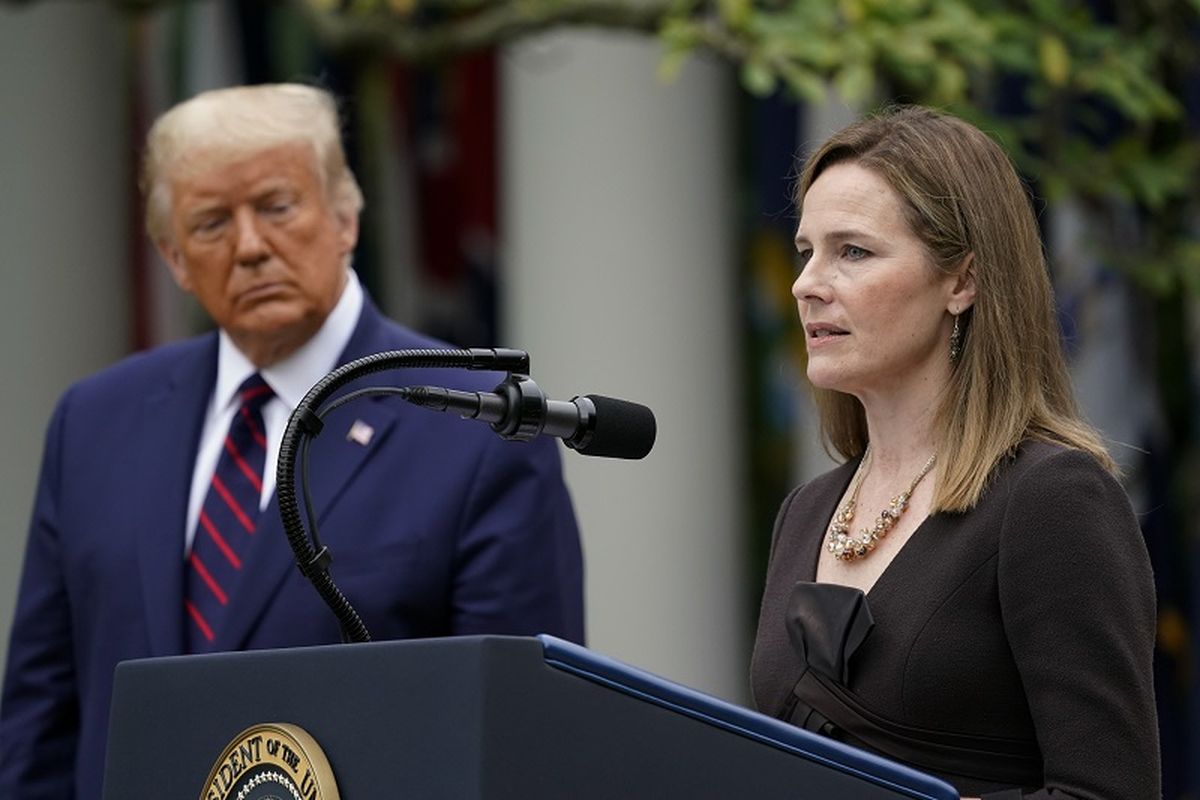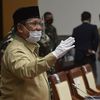Amy Coney Barrett to Face Tough Second Day of Supreme Court Hearing

While Republicans praised Amy Coney Barrett as a competent nominee grounded in family values, Senate Democrat Sheldon Whitehouse summarized his party's hostility to her confirmation, calling her a "judicial torpedo" fired at the health law that protects millions of Americans.
And Democratic vice-presidential candidate Kamala Harris — speaking by videolink — slammed as "reckless" the decision to hold the hearing at all during a pandemic, with two Republican panelists among a recent outbreak of Covid-19 cases linked to the White House.
"This Supreme Court nomination process is illegitimate and deliberately defies the will of the people," she added later on Twitter, highlighting Democratic arguments that voters should decide who gets to pick Ginsburg's replacement.
Read also: Trump to “Move Quickly” in Appointing Female Successor to Ruth Bader Ginsburg
Senator Mike Lee appeared in person to deliver his remarks maskless, despite announcing his Covid-19 diagnosis 10 days earlier, prompting some to highlight the health dangers for the committee members.
Lee's fellow Republican who tested positive, Thom Tillis, appeared remotely.

Graham shrugged off calls for mandatory testing or tracing of senators or staff, saying: "You make it as safe as possible, you manage the risk and you go to work."
Democrats and their presidential candidate Joe Biden are demanding the Supreme Court nomination be left until after the election.
But Trump, trailing Biden in polls and returning to the campaign trail Monday night less than two weeks after falling ill with Covid-19, is desperate for a swift confirmation.
Graham said a final vote on Amy Coney Barrett's appointment could come as soon as October 22.
Amy Coney Barrett, a practicing Catholic, is well regarded by conservative Christians, who share many of her values including opposition to abortion and same-sex marriage.
Read also: Past Writings Indicate Amy Coney Barrett May Reverse Roe v. Wade
Trump's Supreme Court nominee, known for her finely honed legal arguments, vowed to apply the law apolitically and keep her faith and legal judgment separate.
"The policy decisions and value judgments of government must be made by the political branches elected by and accountable to the people," Barrett said at Monday's hearing.
"The public should not expect courts to do so, and courts should not try."


































